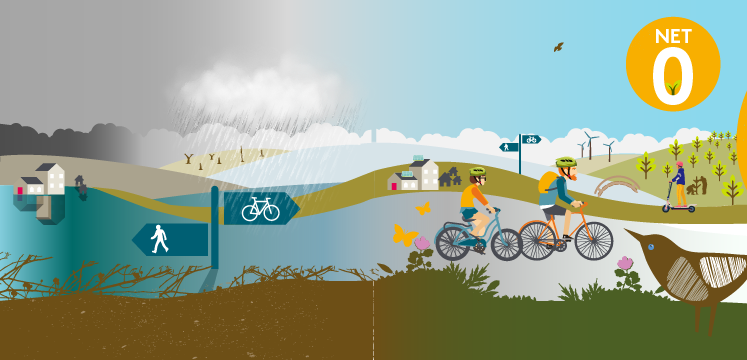
We have developed a list of actions which help to address the identified key challenges facing the Lake District. These same actions contribute to delivering the United Nations’ Sustainable Development Goals.
The key transformational actions from the Outcomes section are highlighted in this list as these have been prioritised for delivery
Each of the actions below has a letter code and a number. The letters relate to the key challenge and the number is the numbered action on that key challenge page.
VCPE = Vibrant communities and prosperous economy following COVID-19
CA = Climate action
FFNC = Future of farming and foresty, nature recovery and climate change
LD4E = Lake District for everyone
STT = Sustainable travel and transport
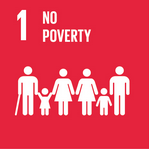 VCPE.act.1: Lobby Homes England to make the social rent funding available for all relevant housing schemes throughout the Lake District not just South Lakeland by 2022.
VCPE.act.1: Lobby Homes England to make the social rent funding available for all relevant housing schemes throughout the Lake District not just South Lakeland by 2022.
VCPE.act.5: Continue to support the multi-agency visitor management response to the Covid-19 pandemic including delivering the Visitor Management Tactical Action Plans.
VCPE.act.8: To maximise the opportunities presented by the Project Gigabit Cumbria pilot project to connect gigabit capable broadband in hard to reach premises in the Lake District.
VCPE.act.6: Lobby transport operators and infrastructure providers to help connect people with jobs in rural areas they couldn’t otherwise take through the provision of an effective and innovative rural bus service.
VCPE.act.22: Develop a training programme for communities to reskill and/or retrain to help build a climate resilient Lake District, including platforms for local community groups to share best practice.
VCPE.act.23: Support communities at very high/extreme vulnerability to the impacts of climate change to create Community Emergency Plans to prepare for extreme weather events or Plans to adapt and increased resilience.
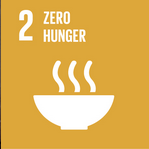 FFNC.act.1: Develop and deliver a coordinated Partnership transition support programme to enable business adaptation, nature and climate recovery, and maintenance of the cultural landscape and supporting support young entrants by securing the high take up of options within the Government’s Agricultural Transition Plan 2021-2024, through:
FFNC.act.1: Develop and deliver a coordinated Partnership transition support programme to enable business adaptation, nature and climate recovery, and maintenance of the cultural landscape and supporting support young entrants by securing the high take up of options within the Government’s Agricultural Transition Plan 2021-2024, through:
a. Delivering business (including succession planning) and environmental advice and support to those farmers, foresters, and land managers who request it to help develop and adapt their business plans to apply for schemes within the Agricultural Transition Plan.
b. Delivering the Farming in Protected Landscapes programme to secure the climate, nature, people, and place themes
c. Delivering the Environmental Land Management test and trails and pilots, and influence Environmental Land Management policy that secure the future of the special qualities and attributes of Outstanding Universal Value 89
d. Assist farmers with advice in securing and delivering Countryside Stewardship schemes between 2021 and 2023
e. Developing and securing a mix of finance opportunities for natural capital and public services projects from private, charitable, public crowdfunding sources.
FFNC.act.2: Make on-the-ground contributions to deliver the Cumbria Local Nature Recovery Strategy by developing the Lake District National Park Nature Recovery Prospectus and delivering it through:
a. Working with individual farms, farm clusters and community farming initiatives to increase understanding of options for nature and climate recovery and identifying and co-creating farming led local nature recovery and landscape scale recovery schemes
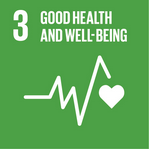 VCPE.act.5: Continue to support the multi-agency visitor management response to the Covid-19 pandemic including delivering the Visitor Management Tactical Action Plans.
VCPE.act.5: Continue to support the multi-agency visitor management response to the Covid-19 pandemic including delivering the Visitor Management Tactical Action Plans.
LDFE.act.1: Create a dedicated Engagement and Outreach Team to provide progressive opportunities for engagement to target underserved groups either in local outdoor spaces or in the Lake District itself. The Engagement and Outreach Team will then identify priority activity to ensure the Lake District is a place for everyone whether connected through association or by a physical visit.
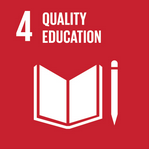 VCPE.act.22: Develop a training programme for communities to reskill and/or retrain to help build a climate resilient Lake District, including platforms for local community groups to share best practice.
VCPE.act.22: Develop a training programme for communities to reskill and/or retrain to help build a climate resilient Lake District, including platforms for local community groups to share best practice.
CA.act.8: Develop a training programme for sustainable retrofit of traditional buildings and raise awareness of traditional building performance and energy efficiency.
FFNC.act.7: Support and encourage young people into farming, forestry and land management, to maintain traditional skills and develop new ones to accrue the knowledge necessary for the maintenance of our cultural landscape and delivery of a ‘public payment for public goods’ agenda.
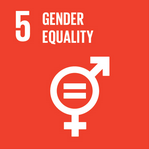 LDFE.act.3: Establish an Equality Advisory Forum to ensure legal and legislative compliance, to embed equality inclusion in strategies and corporate processes, to provide ongoing critical assessment, to promote the equality and inclusion work. The Forum should:
LDFE.act.3: Establish an Equality Advisory Forum to ensure legal and legislative compliance, to embed equality inclusion in strategies and corporate processes, to provide ongoing critical assessment, to promote the equality and inclusion work. The Forum should:
a. Undertake an Equality Analysis of the Partnership’s organisations, looking at their compliance, governance, recruitment;
b. Drive a Partnership commitment to the Diverse Sustainability Initiative;
c. Establish a sub-group of the Equality Advisory Forum with a specific focus on information and communications to continually address and review the messages and information sharing routes in the Lake District including design of information apps, signage and notice boards (including QR codes), as well as having overall responsibility and understanding for sharing information.
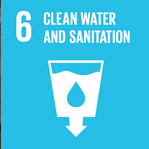 FFNC.act.2: Make on-the-ground contributions to deliver the Cumbria Local Nature Recovery Strategy by developing the Lake District National Park Nature Recovery Prospectus and delivering it through:
FFNC.act.2: Make on-the-ground contributions to deliver the Cumbria Local Nature Recovery Strategy by developing the Lake District National Park Nature Recovery Prospectus and delivering it through:
a. Working with individual farms, farm clusters and community farming initiatives to increase understanding of options for nature 91 and climate recovery and identifying and co-creating farming led local nature recovery and landscape scale recovery schemes.
b. championing and resourcing the recovery of priority and, or protected habitats and species across the Lake District through restoration schemes. This will include their long-term protection and management.
c. Delivering targets for woodland creation and restoration schemes in line with the Partnership’s “Tree planting and woodland creation guidelines”
d. Delivering targets for peatland restoration schemes through schemes at
- Rusland Moss National Nature Reserve
- Caldbeck Common
- Barf Common
- Linking the valleys
e. Pursing the restoration and reintroduction of key species (inc BOOM) f. Improving the system to assess condition and extent of priority habitats
g. supporting the delivery of four community led land management initiatives to increase nature recovery, climate recovery and maintain cultural heritage
FFNC.act.1: Develop and deliver a coordinated Partnership transition support programme to enable business adaptation, nature and climate recovery, and maintenance of the cultural landscape and supporting support young entrants by securing the high take up of options within the Government’s Agricultural Transition Plan 2021-2024, through:
a. Delivering business (including succession planning) and environmental advice and support to those farmers, foresters, and land managers who request it to help develop and adapt their business plans to apply for schemes within the Agricultural Transition Plan.
b. Delivering the Farming in Protected Landscapes programme to secure the climate, nature, people, and place themes
c. Delivering the Environmental Land Management test and trails and pilots, and influence Environmental Land Management policy that secure the future of the special qualities and attributes of Outstanding Universal Value 92
d. Assist farmers with advice in securing and delivering Countryside Stewardship schemes between 2021 and 2023
e. Developing and securing a mix of finance opportunities for natural capital and public services projects from private, charitable, public crowdfunding sources.
FFNC.act.9: Core areas of nature recovery will cover a minimum of 10% of the National Park by 2025, where natural processes are being restored at scale and nature can recover and thrive.
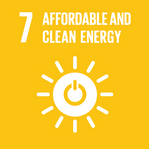 VPCE.act.18: Actively engage with the Clean Energy Sector Panel of the Cumbria Local Enterprise Partnership to assist with the delivery of a Clean Energy Prospectus and the Cumbria Nuclear Prospectus.
VPCE.act.18: Actively engage with the Clean Energy Sector Panel of the Cumbria Local Enterprise Partnership to assist with the delivery of a Clean Energy Prospectus and the Cumbria Nuclear Prospectus.
CA.act.1: Using evidence from the Carbon Budget and other sources to lobby Government to develop new potential net-zero incentives to re-trigger an acceleration in renewable energy production.
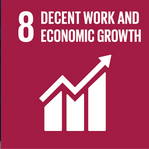 VCPE.act.4: Deliver the projects within the Windermere Gateway area to improve Windermere Station, and deliver affordable housing (circa 160 units) and employment space through:
VCPE.act.4: Deliver the projects within the Windermere Gateway area to improve Windermere Station, and deliver affordable housing (circa 160 units) and employment space through:
a. Delivery of Windermere Station improvements;
b. Delivery of highway improvements
c. Delivery of site allocation CSE01M.
VCPE.act.4d: Adopt Windermere Gateway Area Supplementary Planning Document
VCPE.act.6: Lobby transport operators and infrastructure providers to help connect people with jobs in rural areas they couldn’t otherwise take through the provision of an effective and innovative rural bus service.
VPCE.act.13: Promote ‘takeover spaces’ to support young people and the creative economy to deliver arts and cultural activities.
VPCE.act.14: Lobby central Government for continued provision of fundamental financial support to sustain the Lake District economy through the Covid-19 pandemic and the subsequent recovery.
VPCE.act.15: Lobby central Government to recognise, through various policy measures, such as the Tourism Recovery Plan and Levelling Up agenda, the role the Lake District visitor economy plays in the wider economy.
VPCE.act.5: Continue to support the multi-agency visitor management response to the Covid-19 pandemic including delivering the Visitor Management Tactical Action Plans.
VPCE.act.17: Encourage longer and overnight stays and extend the visitor season through coordinated marketing campaigns and product development.
VCPE.act.7: Secure private financing in natural capital drawing on the partnerships investment ready schemes, including working through the National Park’s Partnerships Net Zero for Nature programme.
VCPE.act.18: Actively engage with the Clean Energy Sector Panel of the Cumbria Local Enterprise Partnership to assist with the delivery of a Clean Energy Prospectus and the Cumbria Nuclear Prospectus.
VCPE.act.8: To maximise the opportunities presented by the Project Gigabit Cumbria pilot project to connect gigabit capable broadband in hard to reach premises in the Lake District.
VCPE.act.22: Develop a training programme for communities to reskill and/or retrain to help build a climate resilient Lake District, including platforms for local community groups to share best practice.
FFNC.act.2: Make on-the-ground contributions to deliver the Cumbria Local Nature Recovery Strategy by developing the Lake District National Park Nature Recovery Prospectus and delivering it through:
a. Working with individual farms, farm clusters and community farming initiatives to increase understanding of options for nature 91 and climate recovery and identifying and co-creating farming led local nature recovery and landscape scale recovery schemes.
b. championing and resourcing the recovery of priority and, or protected habitats and species across the Lake District through restoration schemes. This will include their long-term protection and management.
c. Delivering targets for woodland creation and restoration schemes in line with the Partnership’s “Tree planting and woodland creation guidelines”
d. Delivering targets for peatland restoration schemes through schemes at
- Rusland Moss National Nature Reserve
- Caldbeck Common
- Barf Common
- Linking the valleys
e. Pursing the restoration and reintroduction of key species (inc BOOM) f. Improving the system to assess condition and extent of priority habitats
g. supporting the delivery of four community led land management initiatives to increase nature recovery, climate recovery and maintain cultural heritage
FFNC.act.1: Develop and deliver a coordinated Partnership transition support programme to enable business adaptation, nature and climate recovery, and maintenance of the cultural landscape and supporting support young entrants by securing the high take up of options within the Government’s Agricultural Transition Plan 2021-2024, through:
a. Delivering business (including succession planning) and environmental advice and support to those farmers, foresters, and land managers who request it to help develop and adapt their business plans to apply for schemes within the Agricultural Transition Plan.
b. Delivering the Farming in Protected Landscapes programme to secure the climate, nature, people, and place themes
c. Delivering the Environmental Land Management test and trails and pilots, and influence Environmental Land Management policy that secure the future of the special qualities and attributes of Outstanding Universal Value 92
d. Assist farmers with advice in securing and delivering Countryside Stewardship schemes between 2021 and 2023
e. Developing and securing a mix of finance opportunities for natural capital and public services projects from private, charitable, public crowdfunding sources.
FFNC.act.7: Support and encourage young people into farming, forestry and land management, to maintain traditional skills and develop new ones to accrue the knowledge necessary for the maintenance of our cultural landscape and delivery of a ‘public payment for public goods’ agenda.
LDFE.act.2: Ensure the Lake District is welcoming for all by:
Developing a ‘Warm Welcome’ certificated training scheme, applicable to the Tourism sector and other staff engaging with visitors. Embed the training as a requirement into existing staff professional development and into new staff roles.
Promoting the ‘Warm Welcome’ training scheme to businesses and organisations through existing networks to encourage its take up to develop staff skills.
Delivering greater coverage of ‘on the ground ambassadors’ by joining up and focusing visitor facing rangers, staff, and volunteers across the Partnership organisations, and where possible appointing additional rangers to fill gaps.
Developing and promoting a wider range of volunteering opportunities and packages (including volunteering holidays) that meet the needs of a diverse audience to create enjoyable experiences
ST.act.9: Deliver short term actions set out in the Visitor Management Tactical Action Plan to support covid-19 recovery including attract and disperse, active travel development, recovery of public transport use, temporary car parking and ensuring safe space in public realm and on road for walking and cycling.
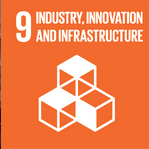 VCPE.act.4: Deliver the projects within the Windermere Gateway area to improve Windermere Station, and deliver affordable housing (circa 160 units) and employment space through:
VCPE.act.4: Deliver the projects within the Windermere Gateway area to improve Windermere Station, and deliver affordable housing (circa 160 units) and employment space through:
a. Delivery of Windermere Station improvements;
b. Delivery of highway improvements
c. Delivery of site allocation CSE01M.
VCPE.act.4d: Adopt Windermere Gateway Area Supplementary Planning Document
VCPE.act.6: Lobby transport operators and infrastructure providers to help connect people with jobs in rural areas they couldn’t otherwise take through the provision of an effective and innovative rural bus service
VCPE.act.18: Actively engage with the Clean Energy Sector Panel of the Cumbria Local Enterprise Partnership to assist with the delivery of a Clean Energy Prospectus and the Cumbria Nuclear Prospectus.
VCPE.act.8: To maximise the opportunities presented by the Project Gigabit Cumbria pilot project to connect gigabit capable broadband in hard to reach premises in the Lake District.
VCPE.act.20: We will promote the Cumbria County Council Digital Infrastructure Strategy particularly to the hardest to reach areas in the Lake District
VCPE.act.9: For those premises which will not be covered by Project Gigabit, we will work with communities to help promote the opportunity presented by ‘altnet’ providers to connect rural communities to gigabit capable broadband.
VCPE.act.21: Use the funding from European Structural Investment Fund to deliver low-carbon investments to support a wide range of businesses by 2023.
ST.act.1: Advocate and support initiatives for multi-modal ticketing and enhanced connectivity from the West Coast Mainline between Penrith and Keswick and from Oxenholme and Windermere Stations.
ST.act.2: Support the following rail upgrades: Lobbying and working with relevant bodies and organisations to support proposals for funding and delivery of following rail upgrades:
a. Doubling of capacity on the Lakes Line.
b. Cumbria Coast Line improvements.
c. West Coast Main Line service stopping and capacity improvements. Direct services to/from London, Scotland and Manchester Airport.
d. Improved number of trains stopping at Penrith and Oxenholme and connectivity with HS2 to meet the needs of Lake District.
e. Station accessibility improvements on all lines, and in particular improved accessibility at Ulverston and Staveley.
ST.act.8: Encourage providers to improve digital platforms to promote and inform sustainable travel on and between all modes
ST.act.13: Support new opportunities and research coming forward from technology developments including shared mobility, information, ticketing and research
ST.act.17: Support the Community Rail Partnership to deliver rail improvements including funding applications to improve station accessibility at Ulverston and Staveley.
FFNC.act.1e: Developing and securing a mix of finance opportunities for natural capital and public services projects from private, charitable, public crowdfunding sources.
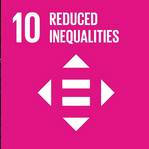 VCPE.act.1: Lobby Homes England to make the social rent funding available for all relevant housing schemes throughout the Lake District not just South Lakeland by 2022.
VCPE.act.1: Lobby Homes England to make the social rent funding available for all relevant housing schemes throughout the Lake District not just South Lakeland by 2022.
VPCE.act.2: Lobby central Government to agree to introduce a mechanism to control the conversion of first to second homes in the Lake District, 98 and to remove the small business rates exemption for furnished holiday homes by 2023.
VCPE.act.3: Lobby mortgage lenders to agree to be more flexible when lending on properties with local occupancy controls, and review annually
VCPE.act.6: Lobby transport operators and infrastructure providers to help connect people with jobs in rural areas they couldn’t otherwise take through the provision of an effective and innovative rural bus service
VCPE.act.10: Review and seek to increase council tax on second homes to raise additional revenue for the provision of more affordable homes
VCPE.act.12: Continue to secure funding to deliver improvements at Bowness Bay and the Glebe
VCPE.act.14: Lobby central Government for continued provision of fundamental financial support to sustain the Lake District economy through the Covid-19 pandemic and the subsequent recovery.
VCPE.act.15: Lobby central Government to recognise, through various policy measures, such as the Tourism Recovery Plan and Levelling Up agenda, the role the Lake District visitor economy plays in the wider economy
VCPE.act.5: Continue to support the multi-agency visitor management response to the Covid-19 pandemic including delivering the Visitor Management Tactical Action Plans.
VCPE.act.8: To maximise the opportunities presented by the Project Gigabit Cumbria pilot project to connect gigabit capable broadband in hard to reach premises in the Lake District.
VCPE.act.9: For those premises which will not be covered by Project Gigabit, we will work with communities to help promote the opportunity presented by ‘altnet’ providers to connect rural communities to gigabit capable broadband.
LDFE.act.1: Create a dedicated Engagement and Outreach Team to provide progressive opportunities for engagement to target underserved groups either in local outdoor spaces or in the Lake District itself. The Engagement and Outreach Team will then identify priority 99 activity to ensure the Lake District is a place for everyone whether connected through association or by a physical visit.
LDFE.act.1 (a,b,c,d,e): identify and understand the numerous organisations and associations that might already be supporting a person or group of people to make a connection with the Lake District (physical or otherwise) and to identify where they might best provide additional support;
Develop programmes of activities supported by local leaders and role models to create ‘ladders’ of experience for outdoor experiences;
Focusing on nearby underrepresented groups, make access to the outdoors easier by creating and promoting attractive destinations, affordable travel, and information available in appropriate formats;
Improve partnerships with outdoor provider centres by developing a project to work with providers and visitor groups to develop activities that link the Lake District with home settings;
Undertake action research or evaluation to support the sharing of best practice more widely (such as that commissioned by Forestry England to review their Digital Forest Project in Grizedale).
LDFE.act.4: Develop formal engagement pathways, with a focus on increasing diversity of uptake and representation, across the Lake District by working in partnership with community organisations to develop connections for potential employees and volunteers.
LDFE.act.2 Ensure the Lake District is welcoming for all by:
Developing a ‘Warm Welcome’ certificated training scheme, applicable to the Tourism sector and other staff engaging with visitors. Embed the training as a requirement into existing staff professional development and into new staff roles.
Promoting the ‘Warm Welcome’ training scheme to businesses and organisations through existing networks to encourage its take up to develop staff skills.
Delivering greater coverage of ‘on the ground ambassadors’ by joining up and focusing visitor facing rangers, staff, and volunteers across the Partnership organisations, and where possible appointing additional rangers to fill gaps.
Developing and promoting a wider range of volunteering opportunities and packages (including volunteering holidays) that meet the needs of a diverse audience to create enjoyable experiences
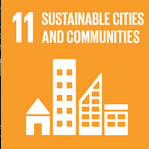 VCPE.act.1: Lobby Homes England to make the social rent funding available for all relevant housing schemes throughout the Lake District not just South Lakeland by 2022.
VCPE.act.1: Lobby Homes England to make the social rent funding available for all relevant housing schemes throughout the Lake District not just South Lakeland by 2022.
VPCE.act.2: Lobby central Government to agree to introduce a mechanism to control the conversion of first to second homes in the Lake District, 98 and to remove the small business rates exemption for furnished holiday homes by 2023.
VCPE.act.3: Lobby mortgage lenders to agree to be more flexible when lending on properties with local occupancy controls, and review annually.
VCPE.act.6: Lobby transport operators and infrastructure providers to help connect people with jobs in rural areas they couldn’t otherwise take through the provision of an effective and innovative rural bus service
VCPE.act.10: Review and seek to increase council tax on second homes to raise additional revenue for the provision of more affordable homes
VCPE.act.12: Continue to secure funding to deliver improvements at Bowness Bay and the Glebe
VCPE.act.14: Lobby central Government for continued provision of fundamental financial support to sustain the Lake District economy through the Covid-19 pandemic and the subsequent recovery.
VCPE.act.15: Lobby central Government to recognise, through various policy measures, such as the Tourism Recovery Plan and Levelling Up agenda, the role the Lake District visitor economy plays in the wider economy.
VCPE.act.5: Continue to support the multi-agency visitor management response to the Covid-19 pandemic including delivering the Visitor Management Tactical Action Plans.
VCPE.act.8: To maximise the opportunities presented by the Project Gigabit Cumbria pilot project to connect gigabit capable broadband in hard to reach premises in the Lake District.
VCPE.act.9: For those premises which will not be covered by Project Gigabit, we will work with communities to help promote the opportunity presented by ‘altnet’ providers to connect rural communities to gigabit capable broadband.
LDFE.act.1: Create a dedicated Engagement and Outreach Team to provide progressive opportunities for engagement to target underserved groups either in local outdoor spaces or in the Lake District itself. The Engagement and Outreach Team will then identify priority 99 activity to ensure the Lake District is a place for everyone whether connected through association or by a physical visit.
LDFE.act.1 (a,b,c,d,e): identify and understand the numerous organisations and associations that might already be supporting a person or group of people to make a connection with the Lake District (physical or otherwise) and to identify where they might best provide additional support;
Develop programmes of activities supported by local leaders and role models to create ‘ladders’ of experience for outdoor experiences;
Focusing on nearby underrepresented groups, make access to the outdoors easier by creating and promoting attractive destinations, affordable travel, and information available in appropriate formats;
Improve partnerships with outdoor provider centres by developing a project to work with providers and visitor groups to develop activities that link the Lake District with home settings;
Undertake action research or evaluation to support the sharing of best practice more widely (such as that commissioned by Forestry England to review their Digital Forest Project in Grizedale).
LDFE.act.3: Establish an Equality Advisory Forum to ensure legal and legislative compliance, to embed equality inclusion in strategies and corporate processes, to provide ongoing critical assessment, to promote the equality and inclusion work. The Forum should:
a. Undertake an Equality Analysis of the Partnership’s organisations, looking at their compliance, governance, recruitment;
b. Drive a Partnership commitment to the Diverse Sustainability Initiative;
c. Establish a sub-group of the Equality Advisory Forum with a specific focus on information and communications to continually address and review the messages and information sharing routes in the Lake District including design of information apps, signage and notice boards (including QR codes), as well as having overall responsibility and understanding for sharing information.
LDFE.act.4: Develop formal engagement pathways, with a focus on increasing diversity of uptake and representation, across the Lake District by working in partnership with community organisations to develop connections for potential employees and volunteers.
LDFE.act.2 Ensure the Lake District is welcoming for all by:
Developing a ‘Warm Welcome’ certificated training scheme, applicable to the Tourism sector and other staff engaging with visitors. Embed the training as a requirement into existing staff professional development and into new staff roles.
Promoting the ‘Warm Welcome’ training scheme to businesses and organisations through existing networks to encourage its take up to develop staff skills.
Delivering greater coverage of ‘on the ground ambassadors’ by joining up and focusing visitor facing rangers, staff, and volunteers across the Partnership organisations, and where possible appointing additional rangers to fill gaps.
Developing and promoting a wider range of volunteering opportunities and packages (including volunteering holidays) that meet the needs of a diverse audience to create enjoyable experiences.
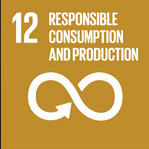 VCPE.act.17 Encourage longer and overnight stays and extend the visitor season through coordinated marketing campaigns and product development.
VCPE.act.17 Encourage longer and overnight stays and extend the visitor season through coordinated marketing campaigns and product development.
VCPE.act.18: Actively engage with the Clean Energy Sector Panel of the Cumbria Local Enterprise Partnership to assist with the delivery of a Clean Energy Prospectus and the Cumbria Nuclear Prospectus.
VCPE.act.21: Use the funding from European Structural Investment Fund to deliver low-carbon investments to support a wide range of businesses by 2023.
VCPE.act.25: Encourage local businesses in the area to procure locally when sourcing goods and services.
CA.act.12: Promote the circular economy based on maintenance/repair/upgrade of traditional buildings.
FFNC.act.3 Reduce the contributions from farming and land management make to greenhouse gas emissions in line with the National Farmers Union net zero goal and support farmers and land managers on adaptation by:
a. Securing resources, promoting, and delivering carbon budget assessments for individual farms, farm clusters and community farming initiatives
b. co-creating and delivering farming led carbon reduction or carbon storage measures through the funding packages available
c. co-creating and supporting farmers and land managers make adaptation part of their plans, and helping to deliver schemes to reduce their own risk to climate change, and deliver public benefits to reduce risks to local communities and the Special Qualities of the Lake District.
FFNC.act.2: Make on-the-ground contributions to deliver the Cumbria Local Nature Recovery Strategy by developing the Lake District National Park Nature Recovery Prospectus and delivering it through:
a. Working with individual farms, farm clusters and community farming initiatives to increase understanding of options for nature 91 and climate recovery and identifying and co-creating farming led local nature recovery and landscape scale recovery schemes.
b. championing and resourcing the recovery of priority and, or protected habitats and species across the Lake District through restoration schemes. This will include their long-term protection and management.
c. Delivering targets for woodland creation and restoration schemes in line with the Partnership’s “Tree planting and woodland creation guidelines”
d. Delivering targets for peatland restoration schemes through schemes at
- Rusland Moss National Nature Reserve
- Caldbeck Common
- Barf Common
- Linking the valleys
e. Pursing the restoration and reintroduction of key species (inc BOOM) f. Improving the system to assess condition and extent of priority habitats
g. supporting the delivery of four community led land management initiatives to increase nature recovery, climate recovery and maintain cultural heritage
FFNC.act.1: Develop and deliver a coordinated Partnership transition support programme to enable business adaptation, nature and climate recovery, and maintenance of the cultural landscape and supporting support young entrants by securing the high take up of options within the Government’s Agricultural Transition Plan 2021-2024, through:
a. Delivering business (including succession planning) and environmental advice and support to those farmers, foresters, and land managers who request it to help develop and adapt their business plans to apply for schemes within the Agricultural Transition Plan.
b. Delivering the Farming in Protected Landscapes programme to secure the climate, nature, people, and place themes
c. Delivering the Environmental Land Management test and trails and pilots, and influence Environmental Land Management policy that secure the future of the special qualities and attributes of Outstanding Universal Value 92
d. Assist farmers with advice in securing and delivering Countryside Stewardship schemes between 2021 and 2023
e. Developing and securing a mix of finance opportunities for natural capital and public services projects from private, charitable, public crowdfunding sources.
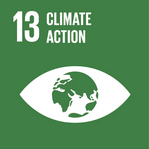 VCPE.act.21: Use the funding from European Structural Investment Fund to deliver low-carbon investments to support a wide range of businesses by 2023.
VCPE.act.21: Use the funding from European Structural Investment Fund to deliver low-carbon investments to support a wide range of businesses by 2023.
VCPE.act.22: Develop a training programme for communities to reskill and/or retrain to help build a climate resilient Lake District, including platforms for local community groups to share best practice.
VCPE.act.23: Support communities at very high or extreme vulnerability to the impacts of climate change to create Community Emergency Plans to prepare for extreme weather events or Plans to adapt and increased resilience.
VCPE.act.24: Promote initiatives to improve energy efficiency and reduce carbon emissions in traditional and community buildings.
CA.act.5: Empowering locally led climate action by creating a network of “climate champions” within communities by working with Zero Carbon Cumbria to support to deliver local projects and community action, including citizen climate juries.
CA.act.1: Using evidence from the Carbon Budget and other sources, lobby Government to develop new net zero incentives to re-trigger an acceleration in renewable energy production.
CA.act.2 Lobbying Government to reduce VAT on the maintenance, repair and retrofitting of traditional buildings as a pilot in the Lake District.
CA.act.3: By June 2022 secure agreement, by all Partners, on significantly reducing carbon emissions through business planning and delivering of carbon savings by integrating climate action into their business plan.
CA.act.4: By June 2023 develop and agree a pipeline of new Zero Carbon Cumbria Partnership sector projects for climate action to move towards addressing the gap identified that can be feasibly implemented in the next 10, 15, 20 years.
CA.act.5: Each Lake District Partnership sub group, as well as Zero Cumbria Carbon Partnership, understanding and identifying what is required to scale up and prepare for rapid and more ambitious action to secure net zero.
CA.act.7: By June 2023 establish a net zero carbon tourism network working together on climate change.
CA.act.8: Develop a training programme for sustainable retrofit of traditional buildings and raise awareness of traditional building performance and energy efficiency.
CA.act.9: Deliver an integrated innovative communications strategy that supports all efforts to work towards net zero.
CA.act.10: Organise and facilitate an annual Lake District Climate Festival, demonstrating climate leadership, showcasing projects and inspiring action.
CA.act.11: Deliver a number of public engagement workshops that inform on the risk of climate change to the Lake District and the role individuals and communities can play in addressing this through fair and equal action.
CA.act.12: Promote the circular economy based on maintenance/ repair/ upgrade of traditional buildings.
CA.act.13: Identify low carbon solutions and case study promotion to encourage adoption through Green Business Networks.
FFNC.act.2: Make on-the-ground contributions to deliver the Cumbria Local Nature Recovery Strategy by developing the Lake District National Park Nature Recovery Prospectus and delivering it through:
a. Working with individual farms, farm clusters and community farming initiatives to increase understanding of options for nature 91 and climate recovery and identifying and co-creating farming led local nature recovery and landscape scale recovery schemes.
b. championing and resourcing the recovery of priority and, or protected habitats and species across the Lake District through restoration schemes. This will include their long-term protection and management.
c. Delivering targets for woodland creation and restoration schemes in line with the Partnership’s “Tree planting and woodland creation guidelines”
d. Delivering targets for peatland restoration schemes through schemes at
- Rusland Moss National Nature Reserve
- Caldbeck Common
- Barf Common
- Linking the valleys
e. Pursing the restoration and reintroduction of key species (inc BOOM) f. Improving the system to assess condition and extent of priority habitats
g. supporting the delivery of four community led land management initiatives to increase nature recovery, climate recovery and maintain cultural heritage
FFNC.act.3 Reduce the contributions from farming and land management make to greenhouse gas emissions in line with the National Farmers Union net zero goal and support farmers and land managers on adaptation by:
a. Securing resources, promoting, and delivering carbon budget assessments for individual farms, farm clusters and community farming initiatives
b. co-creating and delivering farming led carbon reduction or carbon storage measures through the funding packages available
c. co-creating and supporting farmers and land managers make adaptation part of their plans, and helping to deliver schemes to reduce their own risk to climate change, and deliver public benefits to reduce risks to local communities and the Special Qualities of the Lake District.
FFNC.act.8: The Partnership’s “Tree planting and woodland creation guidelines” are being used from 2022 to help everyone to get the right trees and woodlands in the right places for the right reasons and in the right way.
ST.act.7: Lobby Government to support providers to deliver low carbon trains, buses and boats.
ST.act.10: Continue to improve access to information on parking, travel and congestion including the Safer Lakes website and develop and market opportunities to park up for the day and walk, cycle, or use sustainable transport.
ST.act.3: Develop marketing and ticketing initiatives for all sustainable and active transport modes. All Partners to promote sustainable travel through their own communications.
ST.act.11: Ensure the Lake District’s plans to decarbonise its transport are covered fully in the Cumbria Transport Infrastructure Plan (CTIP) and support the delivery of these actions. Make sure these two strategic planning initiatives are mutually reinforcing.
ST.act.4 (a, b, c): Work in partnership to secure the decarbonisation of transport including:
a. Rolling out EV charging.
b. Support carbon reduction technology on buses, trains and water transport.
c. Secure funding for and delivery of rail improvements on the Lakes Line to deliver passing loop, and electrification or other low carbon technologies.
ST.act.4 (d, e, f) d: Deliver better passenger waiting facilities and interchanges, including Ambleside Bus Station.
e. Support more resilient infrastructure and increased capacity for water transport.
f. Deliver integrated transport projects including those set out in the Keswick Transport Study.
ST.act.12: All partners to commit to a reduction in staff and visitor travel and travel related carbon emissions through continuing opportunities for virtual working, meetings and events.
ST.act.5 (a, b, c): Develop high quality active travel measures including:
a. Develop cycle corridors and spurs and set out in CTIP Cumbria Transport Improvement Plan and Borderlands See More Lake District Project.
b. Develop a network of e-bike charging points.
c. Targeted traffic management in suitable locations through community pilots
ST.act.5 (d, e, f): d. Market and promote opportunities for active recreation including cycling, walking and horse riding.
e. Create, maintain and promote waymarked walking routes on the existing rights of way network.
f. Create new routes, including accessible Miles without Stiles routes and links from visitor hubs to key visitor locations.
ST.act.17: Support the Community Rail Partnership to deliver rail improvements including funding applications to improve station accessibility at Ulverston and Staveley.
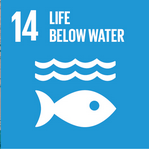 FFNC.act.2: Make on-the-ground contributions to deliver the Cumbria Local Nature Recovery Strategy by developing the Lake District National Park Nature Recovery Prospectus and delivering it through:
FFNC.act.2: Make on-the-ground contributions to deliver the Cumbria Local Nature Recovery Strategy by developing the Lake District National Park Nature Recovery Prospectus and delivering it through:
a. Working with individual farms, farm clusters and community farming initiatives to increase understanding of options for nature 91 and climate recovery and identifying and co-creating farming led local nature recovery and landscape scale recovery schemes.
b. championing and resourcing the recovery of priority and, or protected habitats and species across the Lake District through restoration schemes. This will include their long-term protection and management.
c. Delivering targets for woodland creation and restoration schemes in line with the Partnership’s “Tree planting and woodland creation guidelines”
d. Delivering targets for peatland restoration schemes through schemes at
- Rusland Moss National Nature Reserve
- Caldbeck Common
- Barf Common
- Linking the valleys
e. Pursing the restoration and reintroduction of key species (inc BOOM) f. Improving the system to assess condition and extent of priority habitats
g. supporting the delivery of four community led land management initiatives to increase nature recovery, climate recovery and maintain cultural heritage
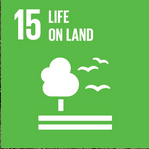 VVCPE.act.7: Secure private financing in natural capital drawing on the partnerships investment ready schemes, including working through the National Park’s Partnerships Net Zero for Nature programme.
VVCPE.act.7: Secure private financing in natural capital drawing on the partnerships investment ready schemes, including working through the National Park’s Partnerships Net Zero for Nature programme.
VCPE.act.19: Encourage businesses, individuals, and organisations operating in the Lake District to invest in natural capital projects through the Lake District Foundation, and promote when this occurs.
FFNC.act.1: Develop and deliver a coordinated Partnership transition support programme to enable business adaptation, nature and climate recovery, and maintenance of the cultural landscape and supporting support young entrants by securing the high take up of options within the Government’s Agricultural Transition Plan 2021-2024, through:
a. Delivering business (including succession planning) and environmental advice and support to those farmers, foresters, and land managers who request it to help develop and adapt their business plans to apply for schemes within the Agricultural Transition Plan.
b. Delivering the Farming in Protected Landscapes programme to secure the climate, nature, people, and place themes
c. Delivering the Environmental Land Management test and trails and pilots, and influence Environmental Land Management policy that secure the future of the special qualities and attributes of Outstanding Universal Value 92
d. Assist farmers with advice in securing and delivering Countryside Stewardship schemes between 2021 and 2023
e. Developing and securing a mix of finance opportunities for natural capital and public services projects from private, charitable, public crowdfunding sources.
FFNC.act.2: Make on-the-ground contributions to deliver the Cumbria Local Nature Recovery Strategy by developing the Lake District National Park Nature Recovery Prospectus and delivering it through:
a. Working with individual farms, farm clusters and community farming initiatives to increase understanding of options for nature 91 and climate recovery and identifying and co-creating farming led local nature recovery and landscape scale recovery schemes.
b. championing and resourcing the recovery of priority and, or protected habitats and species across the Lake District through restoration schemes. This will include their long-term protection and management.
c. Delivering targets for woodland creation and restoration schemes in line with the Partnership’s “Tree planting and woodland creation guidelines”
d. Delivering targets for peatland restoration schemes through schemes at
- Rusland Moss National Nature Reserve
- Caldbeck Common
- Barf Common
- Linking the valleys
e. Pursing the restoration and reintroduction of key species (inc BOOM) f. Improving the system to assess condition and extent of priority habitats
g. supporting the delivery of four community led land management initiatives to increase nature recovery, climate recovery and maintain cultural heritage
FFNC.act.3 Reduce the contributions from farming and land management make to greenhouse gas emissions in line with the National Farmers Union net zero goal and support farmers and land managers on adaptation by:
a. Securing resources, promoting, and delivering carbon budget assessments for individual farms, farm clusters and community farming initiatives
b. co-creating and delivering farming led carbon reduction or carbon storage measures through the funding packages available
c. co-creating and supporting farmers and land managers make adaptation part of their plans, and helping to deliver schemes to reduce their own risk to climate change, and deliver public benefits to reduce risks to local communities and the Special Qualities of the Lake District.
FFNC.act.4: Maintain, celebrate and strengthen traditional Lake District farming systems by:
a. preparing and publishing an updated Lake District Shepherds Guide by 2023 to establish a baseline of fell going flocks to understand and support the viability of hefted flocks.
b. increasing number of Commons in successful agri-environment schemes and landscape recovery pilots and projects to sustain and enhance the value and benefit Commons provide.
FFNC.act.6: That we work together to champion, promote incentives, and provide researched options to support traditional Lake District farming systems which sustain World Heritage Outstanding Universal Value, support profitable businesses, and deliver nature recovery, climate and other public benefits.
FFNC.act.7: Support and encourage young people into farming, forestry and land management, to maintain traditional skills and develop new ones to accrue the knowledge necessary for the maintenance of our cultural landscape and delivery of a ‘public payment for public goods’ agenda.
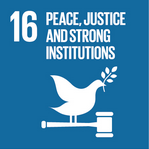 LDFE.act.3: Establish an Equality Advisory Forum to ensure legal and legislative compliance, to embed equality inclusion in strategies and corporate processes, to provide ongoing critical assessment, to promote the equality and inclusion work. The Forum should:
LDFE.act.3: Establish an Equality Advisory Forum to ensure legal and legislative compliance, to embed equality inclusion in strategies and corporate processes, to provide ongoing critical assessment, to promote the equality and inclusion work. The Forum should:
a. Undertake an Equality Analysis of the Partnership’s organisations, looking at their compliance, governance, recruitment;
b. Drive a Partnership commitment to the Diverse Sustainability Initiative;
c. Establish a sub-group of the Equality Advisory Forum with a specific focus on information and communications to continually address and review the messages and information sharing routes in the Lake District including design of information apps, signage and notice boards (including QR codes), as well as having overall responsibility and understanding for sharing information.
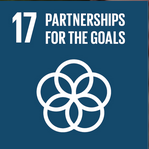 CA.act.4: By June 2023 develop and agree a pipeline of new Zero Carbon Cumbria Partnership sector projects for climate action to move towards addressing the gap identified that can be feasibly implemented in the next 10, 15, 20 years.
CA.act.4: By June 2023 develop and agree a pipeline of new Zero Carbon Cumbria Partnership sector projects for climate action to move towards addressing the gap identified that can be feasibly implemented in the next 10, 15, 20 years.
All: Working together as a Partnership of 25 organisations to deliver the actions of the Partnership’s Management Plan
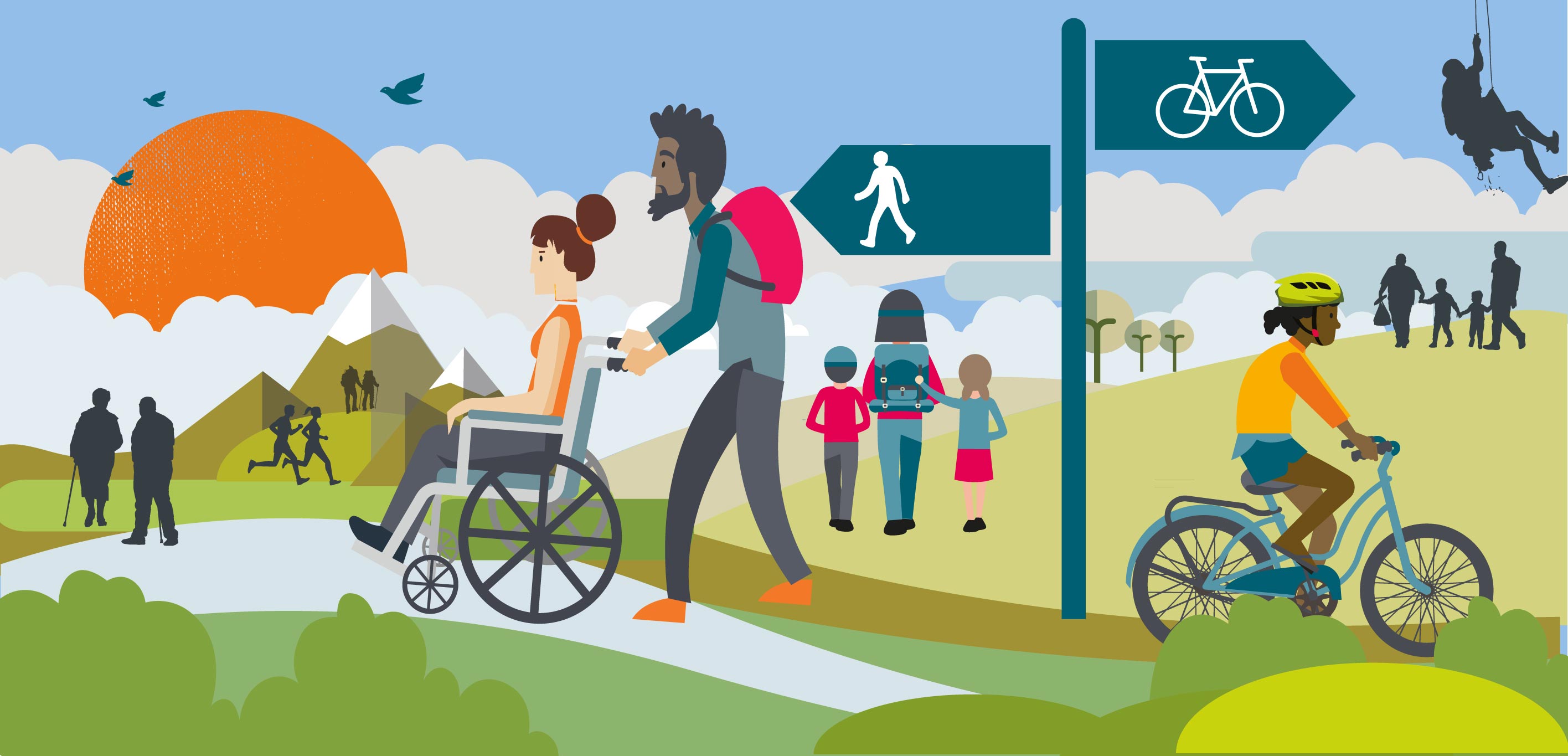
Our joint Management Plan for the Lake District - reflecting our position as a National Park and a World Heritage Site - prepared by the 22 organisations in the Lake District National Park Partnership, adopted by the Lake District National Park Authority, 20 October 2021.